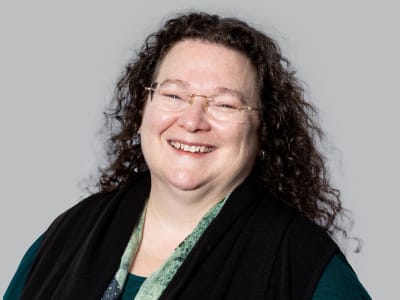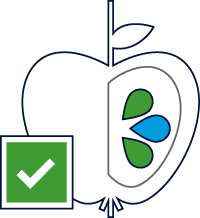The NDIS have recently issued a batch of new operational guidelines and pricing updates:
- New PAPL or Pricing Arrangements and Price Limits guide, which will be effective from 24 November 2025
- New operational guidelines for Therapy providers, effective immediately
- New operational guidelines for Short Term Accommodation – now renamed Short Term Respite, effective immediately
We have outlined some of the key changes, potential impacts and risks that businesses need to know to remain compliant with the NDIS rules.
Some providers may potentially be impacted by reduced revenue – either from direct pricing cuts, or from the imposition of restrictions in eligibility criteria for some services and supports – where a participant may no longer be considered eligible for a support, or a support previously used and claimed, is no longer able to be claimed from the NDIS as it is not considered a “disability support” under the legislation changes.
Providers may also find these changes impact their risks (financial and compliance), depending on their circumstances. The guidance provided by the NDIS (especially for the technical interpretation of the rules) is limited, and we advise checking the NDIS FAQ on the website as further information is published here.
These changes will add more pressure to NDIS participants and families, creating some very real challenges and restrictions in accessing valued supports for some participants. There is clear cost shifting implications for participants to pay for some types of fees and services privately or via other schemes e.g. Medicare.
The sections below outline each of the documents, and summarise the key changes, actions for providers and key concerns and issues.
The sections below offer a detailed, technical summary of all the changes– to help navigate this, we have summarised what providers offering different types of services need to know:
- Therapy providers – see PAPL and Therapy operational guidelines sections for some extensive changes
- SDA providers – see PAPL – links to new calculator with updated indexation for SDA prices
- Assistive technology, home modifications or consumables providers – see PAPL new code guides and rules
- Community, social and recreational activity providers – see PAPL for updated definitions
- Providers of regional and remote services, especially in WA – see PAPL for updated Modified Monash Model
- Short Term Accommodation providers – see STA operational guidelines section for substantial changes to definitions
A summary of the action points for each of the updates is included here:
Action Points Providers for PAPL:
|
Action Points for Therapy Providers:
|
Action Points for Short Term Accommodation / Short Term Respite Providers:
|
The key changes will affect:
- Art and Music therapists.
- Any provider or participant still claiming COVID supports.
- Regional, Remote and Rural providers who use the remote and very remote loadings.

- SDA accommodation providers.
- Any participants and providers who use the Assistive Technology, Home Modifications and Consumables code guides.
- Providers of community social and recreational activities, innovative community participation, and community participation supports.
In summary the changes are as follows:
- Art and Music Therapy prices have been cut by 19.6%.
- The price limit for art and music therapy has been reduced from $193.99 to $156.16 per hour.
- Clarification that only art and music therapists with the appropriate qualifications has also been stipulated.
- Further information on the independent review that led to this decision can be found here.
- COVID Addendum is now removed and does not apply.
- Costs for deep cleaning, vaccines and boosters, for participants and workers, no longer claimable.
- Other measures now ceased, including allowances family members as paid carers, low-cost assistive technology, air purifiers, PPE for participants, and rapid antigen testing for participants.
- The Modified Monash Model (used to determine eligibility for remote or very remote price loadings) has been updated from 2019 to the 2023 MMM version.
- Some locations in WA (Green Head, Leeman) and QLD (Blythdale, Euthulla, Orange Hill, Horrocks) are now recognised as remote and no longer reclassified as remote. Full lists of locations meeting the “Isolated Towns” definition have been added for Greater Geraldton, Irwin, and Mingenew.
- Changes to the definitions of Community, Social and Recreational Activities, Community Participation and Innovative Community Participation which now clearly bring these definitions into line with the Disability Supports Lists. The definition states – should only be used to recover the additional disability-related costs of the participant’s attendance at the community social and participation activities. For example, if a participant wishes to attend a pottery class, the NDIS can provide supports to help the participant travel to and from the class, and provide support workers to help operate the pottery wheel or help you attend, however the NDIS would not fund any membership or entry fees or the cost of the clay or other materials.
- We note the following fees and charges are specifically excluded from claiming as separate items from the NDIS: Fees and payments for outside school hours care and holiday programs • Costs associated with recreational sports and activities, including membership costs, venue hire fees, uniforms and footwear. • Standard (non-modified and not adaptive) recreational equipment and tools, including toys, balls and racquets. • General health, fitness, social or recreational activity costs or services. • Membership and entry to a recreational club and standard gym equipment.
- Innovative Community Participation – now specifies this item is for “extraordinary support needs” and includes specifics regarding exclusions same as above. “Extraordinary” is defined as needs arise due to a participants’ specific situational and personal circumstances.
- Assistive Technology, Home Modifications and Consumables code guide (also attached) have been amended to align with the NDIS Supports lists.
- Eligibility definitions have been clarified for assistance animals, hearing supports and home modifications.
- Assistive products for household tasks, personal care and safety, vision impairment and recreation/ sporting equipment have been amended, expanded and clarified.
- Assistance Animals definitions have been expanded to include dietary needs, grooming, veterinary services and annual accreditation costs.
- More explicit instructions for prepayments, subscription services and co-payments.
- The document updates GST treatment and links to ATO. (We note that tax advice on GST treatment from the NDIA should not be relied upon – please seek up to date advice from your tax advisory expert.)
- SDA providers will find the Specialist Disability Accommodation calculator has been updated as part of the annual process to index Specialist Disability Accommodation pricing following updates to the Disability Support Pension indexation.
- Clarification that plan-managed participants must use registered providers for intensive and complex behaviour supports.
- Rules on travel claiming for therapists now reflect the changes to pricing for therapists that were updated in 1 July 2025.
- Clear guidance referencing “Supports that are NDIS supports lists” are now included in the document.
- Notably, this updated version, does not include any changes that reflect the update in the Short Term Respite Operational Guidelines (outlined below).
Action Points Providers for PAPL
- If you are an art or music therapist, talk to your accountant to discuss financial impacts on your business from cuts to fees.
- If you provide community and group services, review the definitions and compliance requirements. Consider costs and fee structures and whether excluded costs can be separated and charged privately to participants.
- If you provide assistive technology, Home Modifications or Consumables, review this in detail – there are detailed changes to claiming items and some have been removed entirely.
- Review technical changes if they apply to you (MMM, SDA etc).
- Seek advice from our NDIS team on any compliance concerns.
Concerns and Impacts
Many of the changes in the PAPL are simply updating the document to reflect the changes in operational guidelines and legislation and improve consistency with the same. However, there are significant impacts for some providers:
- A 19.6% cut in hourly fees will have a significant impact for art and music therapy businesses and those that are reliant on NDIS revenue, must review their financial position and cash flow moving forward.
- The changes in descriptions for community participation clarify and improve consistency with the “NDIS Supports that are Disability Supports” lists. The definitions are more specific, providing clarity for compliance. Any provider that offers these services, should review their services for compliance with the strengthened rules.
- We note that many disability-specific community and social group programs include the prices that could be charged separately - such as entry, tickets, equipment or materials - in the hourly NDIS fee and this is absorbed by the company as a cost of doing business and not separately charged to participants. The changes do not discuss this type of scenario or specifically allow or exclude it. If providers do decide to pass on costs for excluded NDIS items to participants as separately invoiced items, they should clearly distinguish or separate non – NDIS fees such as membership or ticket fees in their invoices for services, ensuring that these are clearly not misinterpreted by participants as NDIS claimable items.
This operational guideline aligns therapy supports with the recent changes to legislation and NDIS rules.
The key highlights include:
Re-defined Evidence-Based Practice:
- Therapy supports must be evidence-based, using current best-practice or highest quality research.
- Providers must ensure therapy is safe, effective, and beneficial for improving or maintaining participant skills and independence.
- Providers (Therapists) must supply evidence that therapy supports are appropriate for each participant.
Qualified Professionals and Compliance with NDIS Standards
- Only qualified allied health professionals can deliver NDIS therapy supports.
- Providers must ensure staff are registered with relevant professional bodies (e.g., AHPRA, ANZACATA, Dietitians Australia, etc.).
- Therapy assistants (allied health assistants) must work under supervision or delegation of a qualified allied health professional, with clear distinction between Level 1 (direct supervision) and Level 2 (delegation).
- Cannot claim funding from the NDIS for unpaid student work placement.
Therapy Planning and Reporting
- Therapists must assess participant needs and develop a measurable therapy plan/program that include strategies, goals, and outcomes, with regular review and evidence of progress reported.
- Multiple therapists are no longer able to work on the same goals at the same time.
- Providers must submit progress reports for plan reassessment, detailing:
- Supports delivered
- Participant progress and outcomes
- Coordination with other therapists
- Barriers and risks
- Recommendations for ongoing therapy
Funding and Invoicing
- All therapy funding will now be “stated supports” in participant plans. A “stated support” can only be spent on that specific support, meaning use of the therapy budget is no longer flexible. Many participant plans state the exact type of therapy E.g. psychology funds and must be spent on psychology. Previously, participants had flexibility over the type of therapy they wished to access to address their goals.
- Therapy supports and invoicing must align with the separate codes outlined in the NDIS Pricing Arrangements and Price Limits.
- Providers must ensure therapy funding is used only for NDIS supports delivered by qualified professionals and not used for non-therapy supports or other capacity building supports. Therapy provides are prevented from working on the same goal at the same time as another therapist.
Scope of Funded Supports
- Only therapies meeting NDIS funding criteria are eligible (see guidelines for specific therapies and required qualifications).
Providers must not deliver or claim for:
- Alternative/complementary therapies (e.g., cuddle therapy, crystal therapy)
- Animal therapy (unless used for animal assistance within evidence-based therapy)
- General fitness, personal training, gym/pool memberships
- Massage therapy (unless delivered by a qualified allied health professional)
- Non-individualised “therapy in a box” programs or subscriptions
- Social group programs or lessons “not supported by evidence”
Collaboration and Training
- Therapy should be delivered in collaboration with participants and their support networks.
- Providers may need to train family, carers, or support workers to implement therapy strategies.
Participant Choice and Flexibility: Participants can choose individual or group sessions, intensive blocks, or regular intervals, and mix therapies as needed, however providers must support participant choice within the constraints of the plan and NDIS guidelines – MUST provide supports aligned with the plan goal, funding components and funding periods. We note that the introduction of funding periods may result in therapy funding spread out across the year evenly, rather than funded as a “block”.
Transition for Children: Providers must support transition from early childhood approach to individual therapy supports at age 9, following best-practice principles.
Action Points for Therapy Providers
- Each provider should review or audit staff qualifications and registrations.
- Update therapy planning and reporting templates to meet new evidence and outcome requirements.
- Review participant service agreements and plans to ensure only eligible therapies are provided and claimed, according to the NDIS plan for goals and funding amounts/ periods.
- Train staff on new compliance requirements, reporting, and participant collaboration.
- Ensure all invoicing and funding use aligns strictly with updated PAPL codes and requirements.
- Review services such as group programs, home programs, subscriptions, etc for eligibility as an NDIS support. If you choose to continue, prepare some documentation outlining the evidence base for the program to support NDIS claims.
- Ensure you are not working on the same plan goal as another therapist.
Concerns and Impacts
- The NDIS has re-defined how they will make decisions on the type, quantity and intensity of therapy funding, by considering measurable outcomes. Therapy industry advocates are describing this as an overreach - the NDIS “prescribing” therapy intensity and determining clinical decisions without the capability to do so. The NDIS is currently investing in an I-CAN assessment tool to support plan development, and it is likely this algorithm-based tool will determine the prescription. This will have implications on the quality and appropriateness of plan funding for participants. Also of concern, is the emphasis in the operational guideline on delivering measurable outcomes, time-limited interventions and the shifting of ongoing “maintenance therapy” toward informal supports (community and family) to implement.
- In making therapy a “stated support”, defined strictly by outcomes and progress reports, the NDIS has allowed for no flexibility or substitution within the existing NDIS plan, which was previously available. If individual therapy needs and goals change, then the participant must submit a plan change request to the NDIS and seek approval prior to spending the funding. This will delay access to critical supports for participants.
- Funding is strictly allocated to appointments, which allows no additional funding to be spent on reports not requested by the NDIA (or travel funding must be subtracted from appointment funding). Participants may need to access medicare or private funding (as appropriate) to undertake assessments not pre-approved and included in the NDIS plan.
- The emphasis on excluding group-based programs such as lego, animal assisted, massage, or home subscription therapy is to intentionally exclude and distinguish community-based programs such as recreation / craft / art / social activities from evidence-based therapy services. In simple terms, the price difference is significant – a community art program would be funded under the core participation rate and is approximately one third of the price of a therapy service. This increased scrutiny may result in plan managers refusing to submit claims for services, affecting administration costs to resolve, and ultimately therapist’s revenue.
The operational guidelines clearly reposition STA or “short term accommodation” to STR or “short term respite” – and it is absolutely, positively not a holiday. These changes clarify very specifically what is and is not short term respite and what elements are and are not funded by the NDIS. While the underlying model of support remains similar, there are additional conditions and rules that add layers of complication, depending on the participant’s plan and circumstances.
If you are an STA provider, and offer a package of services, including accommodation, care supports, meals and activities, you can most likely continue this service and continue using the daily rate. As a provider, you could decide to break up the fees, and pass on the cost of meals and activities directly to the participant to pay privately.
If you provide any STR services separately e.g. accommodation or support alone, some of the new rules may mean that you can no longer claim for those services using the STR rate – however this depends on the individual circumstances and the participant’s NDIS plan.
Providers offering holiday packages or services will no longer be able to claim from the NDIS. Items such as cruises, holiday packages and accommodation, airfares, interstate and overseas travel, passports, visa, travel and vehicle insurance, internet, activities, meals, and holiday accommodation outside of Australia are explicitly banned. Other banned items include claiming for family members providing informal supports and support worker’s accommodation and travel expenses. The rules clarify that participants can use their usual day to day core supports while traveling or using STR.
These changes may impact providers by a reduction in revenue, as participants’ eligibility for funding may be directly affected by the changes in rules, or participants may be confused over whether the respite service constitutes a “holiday”.
The summary of the new operational guidelines is as follows -
Eligibility and Purpose
The definition re defines STR as “time apart from your primary informal supports who give you significant daily support. This provides the opportunity for you to be supported by someone else, while giving your primary informal supports a short break for their usual caring responsibilities.”
- Short term respite (STR) is for participants who need time apart from their primary informal supports (family/friends providing significant daily unpaid support).
- STR can be paid for up to 14 days at a time, and up to 28 days per year (more only in exceptional circumstances).
- STR is not for holidays, travel, or day-to-day living costs (e.g., rent, utilities, food, activities).
- Importantly, this new definition removes the definitions of activities previously funded under STA, such as
- gives you the chance to try new things
- can be a place to make new friends or develop new skills
Service Delivery Requirements
- STR may include:
- Standard accommodation with no extra inclusions – the description outlines basic amenities, and states this must be clean, comfortable, accessible accommodation (hotel, motel, short stay rental, cabin, cottage, hostel, respite facility, or participant’s own home).
- Staying in your own home, or a homestay arrangement – noting that if the home is yours, or a friend or family member’s or a private home, accommodation cannot be funded. Care supports provided by an informal support, such as a friend or family member cannot be funded. Homestay arrangements where the participant stays in a private home and receives support from the person who lives there, can be funded for the supports provided.
- Supports to help you do every day activities can be funded – these are supports that would usually be provided by your “primary informal supports” such as parents or family carers.
- Providers must deliver supports that participants would normally receive from their informal supports (personal care, daily living activities).
- The NDIS expects that STR will be accessed in your home state or territory, and is usually not funded if it is interstate from the participant’s place of residence (exceptions noted for participants living in border towns, or remote/ very remote areas)
- Providers must not deliver or claim for activities or meals (except as part of centre/group accommodation daily rate), or transport unless specifically funded as part of an STR package. New definitions are provided as follows-
- Meals – Can still be included and claimed under the daily STA rate in a “centre or group residence” if the provider includes it in the service package. Meals can also be charged separately and paid for by the participant. Meals cannot be claimed as a separate item from any NDIS plan.
- Activities – Costs for activities such as tickets, entry fees, equipment, or membership fees are not NDIS supports. Some providers may include activities in the cost of the short term respite in a centre or group residence. If the cost isn’t included, then the participant must pay out of their own pocket. Supports to help a participant take part in the activity are still provided.
- Transport – Generally, travel costs to and from the accommodation venue are excluded from STR. If the participant usually requires supported transport this can be funded from core. The guidelines state: You can’t use your short term respite funding to pay for transport to get to your respite accommodation or activity if you can travel or use public transport independently. This means the cost of transport to your short term respite can’t be included in the overall price. You should consider this when you choose the short term respite that’s right for you. If your plan includes separate funding for transport, you can continue to use this funding to travel to and from your short term respite. You can also use this to travel to and from any activities at your short term respite if this is not included. If you live in a remote area and need to travel a long distance to get to your short term respite, you can use your Core budget funding for supports to help you travel there. We may also include more funding to help you get to your short term respite if you live in very remote area.
Eligibility for STR
- Eligibility specifies that a participant must receive daily primary informal supports for more than 6 hours per day on a long-term basis. Further factors outline conditions that a participant would be receiving one of - high intensity supports, complex behaviour support/ intervention, or where alternate in-home supports are not widely available, carers wellbeing and capacity is at risk due to illness or age, or primary caring supports have additional caring requirements.
- Eligibility specifically excludes conditions where the participant lives alone, has more than 18 hours of paid supports per day, if the participant needs a break from primary informal supports, it’s a day to day living cost, waiting for home modifications, live in a SIL or ILO arrangement, or are experiencing a housing crisis.
Children and Families
- STR for children is only funded in exceptional circumstances (significant disability support needs, risk to family’s ability to sustain care, etc.).
- STR cannot replace general parenting responsibilities, mainstream services, or be used for babysitting/nannying.
Action Points for STR Providers
- Review service offerings to ensure only eligible STR supports are provided and claimed. Seek advice from your accountant if this will result in a reduction in revenue.
- Update policies to reflect exclusions, if they apply (holidays, meals, activities, transport).
- Train staff on new compliance requirements, especially around pricing, documentation, and behaviour support.
Concerns and Impacts
- Providers will need to consider how the changes to STR might impact revenue and fees.
- Providers offering a 24 hour day rate service, where all costs are included in the price, can consider if they wish to split out meals and activities costs separately and charge these costs as a private fee to participants. If your service already split costs, then clearly defining NDIS and Non-NDIS fees will be important to maintain compliance.
- Some participants may have limited STR funding but could choose to use Core budget to fund some of their STR services and supports.
- Consider communication with participants and how any changes will be explained.
- Some businesses will be impacted significantly if they have been selling holiday accommodation or travel packages as STA, as this will need significant review and repackaging to split out the various fees and charges between claimable and private fees, or NDIS revenue abandoned due to compliance risk.
- Participant budgets up until now have been allocated under the previous operational guidelines, so accessing STA budgets and spending NDIS funds will require review against the new operational guidelines.
If you are concerned about what this may mean for your business, or want to understand how you can navigate these changes, talk to your RSM advisor or ask our NDIS specialist team how they can help.



 to participants.
to participants. 




